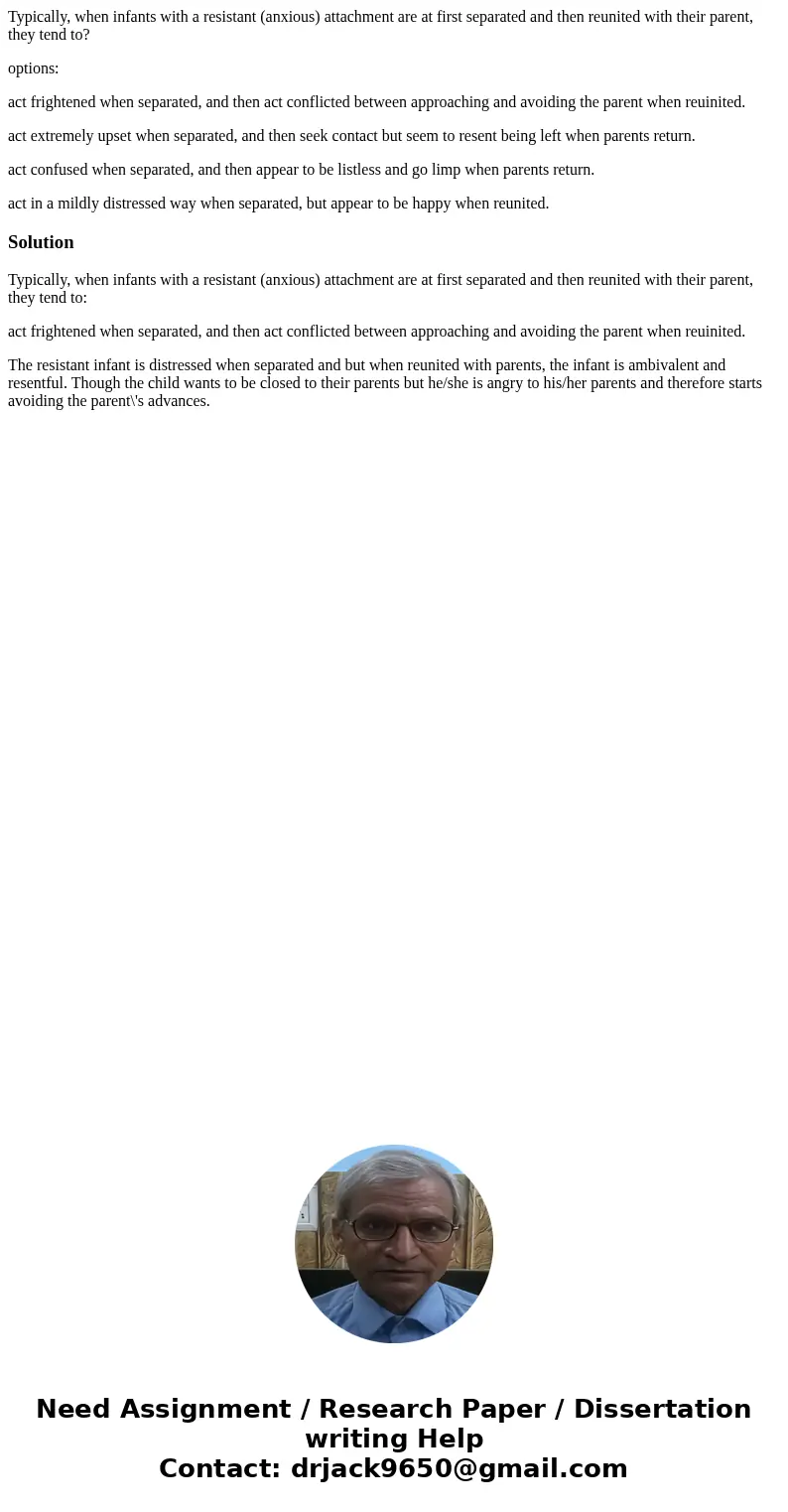Typically when infants with a resistant anxious attachment a
Typically, when infants with a resistant (anxious) attachment are at first separated and then reunited with their parent, they tend to?
options:
act frightened when separated, and then act conflicted between approaching and avoiding the parent when reuinited.
act extremely upset when separated, and then seek contact but seem to resent being left when parents return.
act confused when separated, and then appear to be listless and go limp when parents return.
act in a mildly distressed way when separated, but appear to be happy when reunited.
Solution
Typically, when infants with a resistant (anxious) attachment are at first separated and then reunited with their parent, they tend to:
act frightened when separated, and then act conflicted between approaching and avoiding the parent when reuinited.
The resistant infant is distressed when separated and but when reunited with parents, the infant is ambivalent and resentful. Though the child wants to be closed to their parents but he/she is angry to his/her parents and therefore starts avoiding the parent\'s advances.

 Homework Sourse
Homework Sourse